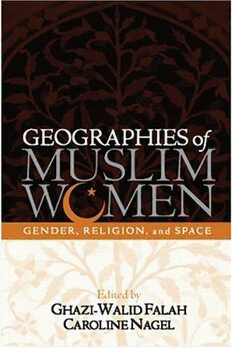
Geographies of Muslim Women: Gender, Religion, and Space PDF
348 Pages·2005·1.887 MB·English
Most books are stored in the elastic cloud where traffic is expensive. For this reason, we have a limit on daily download.
Preview Geographies of Muslim Women: Gender, Religion, and Space
Description:
This groundbreaking volume explores how Islamic discourse and practice intersect with gender relations and broader political and economic processes to shape women's geographies in a variety of regional contexts. Contributors represent a wide range of disciplinary subfields and perspectives--cultural geography, political geography, development studies, migration studies, and historical geography--yet they share a common focus on bringing issues of space and place to the forefront of analyses of Muslim women's experiences. Themes addressed include the intersections of gender, development and religion; mobility and migration; and discourse, representation, and the contestation of space. In the process, the book challenges many stereotypes and assumptions about the category of "Muslim woman," so often invoked in public debate in both traditional societies and the West.
See more
The list of books you might like
Most books are stored in the elastic cloud where traffic is expensive. For this reason, we have a limit on daily download.
